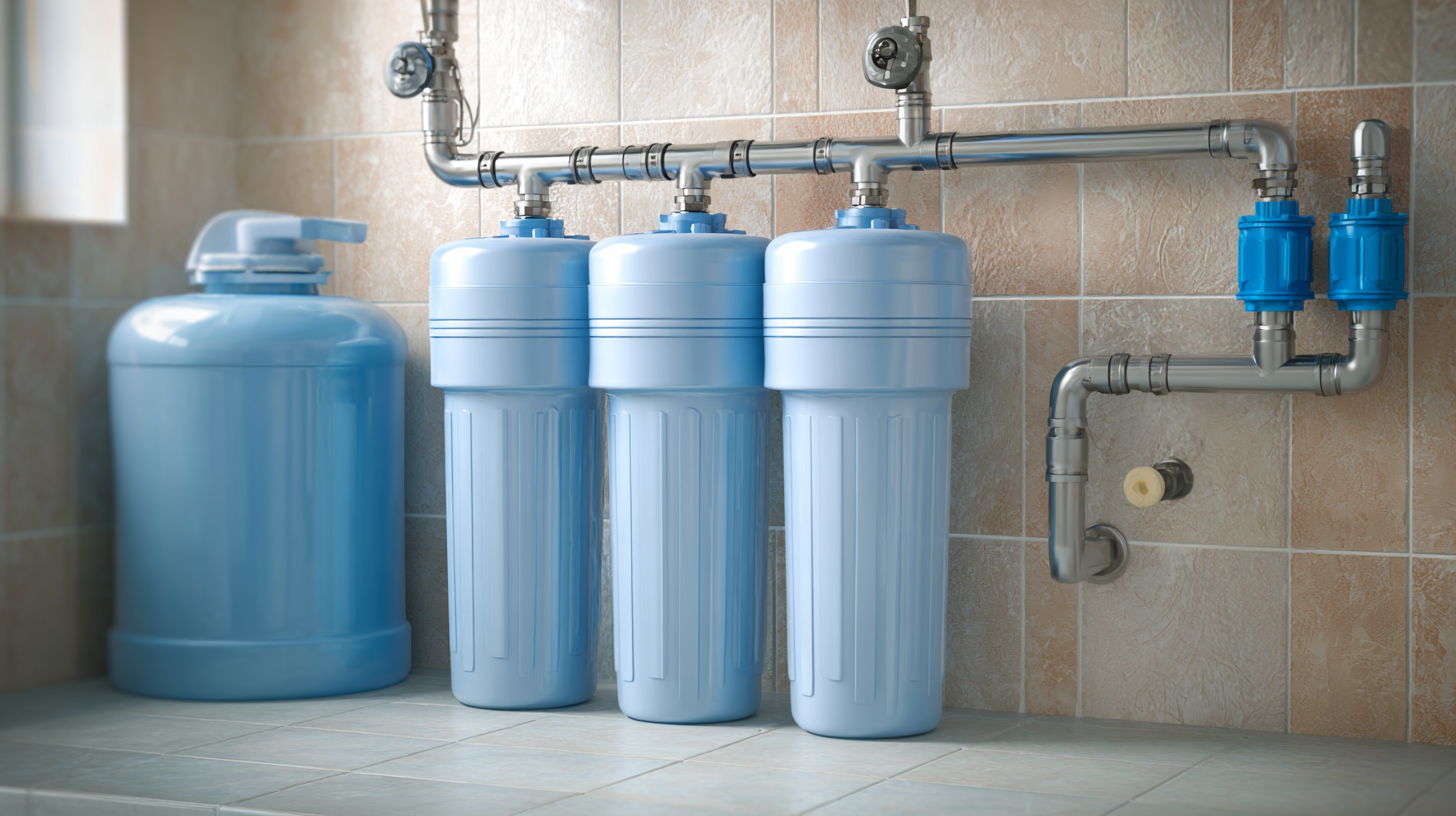Understanding the Importance of a Well Water Filter System for Your Family's Health
Access to clean and safe drinking water is crucial for maintaining the health and wellbeing of families, particularly those relying on well water. According to the Centers for Disease Control and Prevention (CDC), approximately 13 million households in the United States depend on private wells, which may be susceptible to contamination from various sources such as agricultural runoff or septic systems. The importance of implementing a wells water filter system cannot be overstated, as untreated well water can harbor harmful pathogens, heavy metals, and other pollutants.

A study published by the Environmental Protection Agency (EPA) highlights that effective filtration solutions can significantly reduce contaminants, thereby improving water quality and safeguarding family health. By understanding the essential role of a wells water filter system, families can make informed decisions to ensure that their drinking water is not only safe but also free from harmful substances that could affect their overall health.
The Role of Well Water Filters in Ensuring Safe Drinking Water
When considering the safety of drinking water, well water filters play a crucial role in ensuring that families have access to clean and safe water. According to the Environmental Protection Agency (EPA), nearly 15 million households in the United States depend on privately-owned wells, which can be susceptible to contamination from various sources, including bacteria, heavy metals, and chemicals. Using a quality well water filter system can significantly reduce these contaminants, offering peace of mind for families concerned about their health.
A report from the Centers for Disease Control and Prevention (CDC) indicates that over 19 million Americans experience illness from contaminated drinking water each year, with many of these cases linked to well water. To combat these risks, a well-designed filtration system can effectively remove harmful pathogens such as E. coli and giardia, as well as toxic substances like arsenic and nitrates. By implementing a well water filter system, families can enhance their water quality, contributing to better overall health and well-being. Investing in such a system is not just about improving taste; it is a vital step toward safeguarding against potential health hazards associated with untreated well water.

Types of Contaminants Commonly Found in Well Water
Well water can often contain a variety of contaminants that pose serious health risks to families. Among the most concerning of these are Per- and Polyfluoroalkyl Substances (PFAS), which have been identified in groundwater supplies across the United States. With estimates indicating that between 71 to 95 million people may be relying on contaminated water, the significance of understanding these contaminants cannot be overstated. Exposure to PFAS, commonly referred to as "forever chemicals", has been linked to various health issues, prompting the establishment of Maximum Contaminant Levels (MCLs) by the EPA to minimize risks.
In addition to PFAS, well water may harbor other dangerous substances such as coliform bacteria, which can originate from fecal matter. Studies have shown that over 20% of reusable water bottles can contain coliform, underscoring the need for thorough testing and filtration. Furthermore, contaminants from industrial processes, such as hydraulic fracturing, can seep into groundwater, exacerbating the potential health hazards associated with well water usage. As families depend on well water for drinking and daily activities, investing in a high-quality water filter system becomes essential to safeguard their health against these increasingly common contaminants.
Health Risks Associated with Poorly Filtered Well Water
Poorly filtered well water poses significant health risks to families. According to the Environmental Protection Agency (EPA), nearly 13 million households in the U.S. rely on private wells for drinking water, which can be susceptible to contamination from various sources, including agricultural runoff, septic system leakage, and industrial discharges. A study published in the Journal of Water and Health found that 33% of private wells in rural areas contained harmful bacteria, which can lead to gastrointestinal diseases and other health complications.
Furthermore, contaminants like lead and nitrates can go unnoticed without proper filtration. The Centers for Disease Control and Prevention (CDC) notes that high nitrate levels in drinking water can cause methemoglobinemia, or "blue baby syndrome," affecting infants and leading to serious health issues. Moreover, exposure to arsenic, which can contaminate well water, is linked to skin lesions and increased risks of cancer. Thus, investing in a comprehensive well water filter system is crucial for safeguarding your family’s health against these hidden dangers. Regular testing and effective filtration can mitigate these risks, creating a safer drinking environment for your loved ones.
Key Features to Consider When Choosing a Well Water Filter System
When selecting a well water filter system, one of the key features to consider is the system's ability to address specific contaminants that may be present in your water source. For instance, some wells may have high levels of sediments, minerals, or even harmful bacteria. A quality filter will be tailored to remove these impurities, ensuring that your family has access to safe and clean drinking water.
Another crucial aspect to evaluate is the filter's maintenance requirements. Different systems have varying levels of upkeep and replacement needs, which can impact both convenience and cost over time. Systems that feature easy-to-replace filters or those that come with monitoring indicators are often preferable for busy families. Additionally, consider looking for filters that provide a longer lifespan and higher capacity, reducing the frequency of replacements and ensuring that your investment lasts longer. Making an informed choice based on these features can significantly enhance your family's health and well-being.
Key Features of a Well Water Filter System
Maintaining Your Well Water Filter System for Optimal Performance
Maintaining your well water filter system is crucial for ensuring that your family has access to clean and safe drinking water. Regular maintenance not only helps to extend the lifespan of your filtration system but also enhances its performance. One effective tip is to check the pressure gauge on your filter regularly; this helps in identifying any issues that may arise from clogs or blockages. Keeping an eye on the gauge can allow you to address concerns before they escalate into costly repairs.

Another important aspect of maintenance is replacing filter cartridges according to the manufacturer's guidelines. Different types of filters have varying lifespans, and using a filter beyond its recommended change period can lead to decreased water quality. It’s advisable to set reminders for filter replacements based on usage to ensure your system always functions optimally. Lastly, consider conducting annual professional inspections to catch any potential problems early and maintain the overall efficiency of your well water filter system. Keeping your family’s water supply safe and clean is worth the effort!

